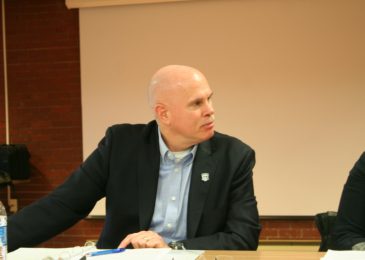KJIPUKTUK (Halifax) – Any time police conduct a street check that information ends up in a database. We wondered how secure that data is, and found that Halifax Regional Police (HRP) is not very helpful.

In his preliminary report on street check data Dr Chris Giacomantonio, a research coordinator at Halifax Regional Police (HRP), reports that between 2005-2016 about 68,000 street check records were stored in the Versadex system.
These street check records resulted in some 99,000 entity records, representing roughly 37,000 unique individuals. That’s a lot of information on people who have not necessarily done anything illegal.
In government there are strict rules around who is allowed access to this type of private information and under what circumstances. After all, you don’t want an employee nosing around for no reason other than personal curiosity.
We asked HRP whether data breaches and breach attempts involving the carding database were being documented. We also asked if people whose information has been breached are informed of such an occurrence? Finally we asked if summary data derived from breach logs is in the public domain?
Three simple yes/no questions, we thought, and somewhat in the public interest. But not according to HRP.
“I have been advised that a FOIPOP request will be required and have attached how to do so for your convenience,” writes Cst. Dianne Penfound, HRP’s media relations officer. FOIPOP stands for the Freedom of Information and Protection of Privacy (FOIPOP) Act.
Only one way to find out.
If you can, please support the Nova Scotia Advocate so that it can continue to cover issues such as poverty, racism, exclusion, workers’ rights and the environment in Nova Scotia. A pay wall is not an option for us, since it would exclude many readers who don’t have any disposable income at all. We rely entirely on occasional one-time donors and a group of 25 or so dedicated monthly sustainers.



